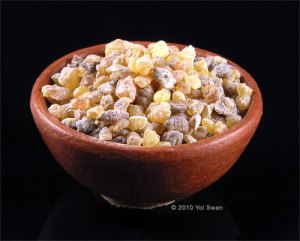Seasonal Effects on Immunity
In Ayurveda, the fall season is related to vata dosha, the bodily humor comprised of air and ether element. During this time, vata becomes increasingly unstable as the cold, dry, and erratic qualities increased in the environment. This can be observed in cold, windy, and shifting whether, as well as in the drying up of leaves and plants. From the winter until early spring, kapha dosha, the earth and water humor, increases and can causes damp, heavy, and stagnating qualities to accumulate in the body. One of the most immunologically vulnerable times is during the change of season, especially from warm to cold whether. Here, it is important to follow healthy habits to protect your immune system.
Below are some helpful tips to help prevent getting in the weeks leading up to fall or winter.
Tips for prevention:
- Dress warm and cover your chest and neck in cold weather.
- Drink a glass of warm lemon water first thing in the morning.
- Drink sufficient of water throughout the day.
- Avoid damp forming foods, such as excess dairy products, sweets, baked goodies, cold foods and drinks.
- Avoid eating cane sugar when possible.
- Get plenty of rest, and avoid staying up late.
- Get daily exercise, everyday.
- Taking 1000-2000 mg. of high quality Vitamin C daily
- Adding herbs and spices like turmeric, fresh ginger and raw garlic to your food.
- Infuse citrus essential oils in you living space.
Tips for Treating the Common Colds and flu.
- Stay hydrated by drinking water, or herbal teas (room temperature or warm)
- Eat warm soupy foods, light broths, and steamed vegetables.
- Eat according to you appetite, no more no less.
- Avoid grains, breads, sweets, fried, and heavy foods.
- Avoid concentrated/bottled fruit juices.
- Rest, Rest Rest.
- Use a humidifier in your bedroom if the air is dry.
Herbal Allies
Below is a list of common Western and Ayurvedic herbs that can be helpful for colds, flus and related complaints.
Tulsi Tea
This is one of my favorite herbs for supporting respiratory health. It has an affinity to the lungs, and sinuses, and also helps to reduce fever. It tastes so good that children will gladly drink it with a little honey. I like making a big batch to have on hand throughout the day. Drinking a hot cup of tulsi tea before going to sleep is a good way to induce sweating to bring down a fever. Prepare by adding 1 rounded tsp. of tulsi per 1 cup of hot water and infuse for 15-20 minutes.
Mullein
This herb is great for helping to relieve inflamed mucous membranes and decongest the lungs and sinuses. It works particularly well when there is yellowish to green mucous, due to heat and infection. To prepare add 1 heaping Tbsp. Mullein per 1 cup of hot water, infuse 15-30 minutes.
Echinacea
This is good herb for treating respiratory tract infections and to give a powerful boost the immune system. Takes 60-90 drops of the liquid extract 3-4 times per day during the acute phase. A few drops of the liquid extract can be taken straight on the tongue and swallowed to sooth a sore throat and to prevent strep. It has an almost numbing effect on the throat, but it can sort of take your breath away for a few minutes.
Elderberry
Taking 1 tsp size doses of elderberry extract (or capsule form) every few hours during acute on-set can help to resolve a cold of flu more quickly. For general prevention it can be taken in larger doses of 1 Tbsp. twice daily. Elder flowers can also be made as an infusion to help lower fever.
Turmeric gargle
Turmeric is a strong antimicrobial and can be prepared as a warm gargle to treat sore or strep throat. Add 1 tsp. turmeric and ½ tsp sea salt into a cup of warm water and gargle as often as desired.
Fresh ginger
Ginger tea is a useful diaphoretic and helps to relieve fever by inducing sweating. For this it combines well with herbs like tulsi, boneset, and yarrow. Ginger also helps to support the digestive fire, which can tend to dwindle when ill.
Boneset
This is one of the best herbs for reducing fever and associated body aches.
Andrographis (Kalmegh)
It is an effective antiviral and antibacterial herbs that helps to fight infection fever and flu. It has a cold action and is good for reducing even high fevers.
Wild cherry Bark
Often made into a cough syrup, this herb is good for the later stages of bronchitis to relieve spasmodic coughs as the mucus is breaking up and tickling the bronchials. Planetary Formulas makes a good cough syrup from this herb called “Old Indian Wild Cherry Cough Syrup.”
Osha root
This herb is one of my favorites for decongesting the lungs. Here it combines well with cooling expectorant like horehound, licorice root and mullein.
Neem
Neem is powerful in fighting sinus and bronchial infection, as well as in reducing fevers. It is a good substitute for this more endangered plant goldenseal.
Garlic
Fresh Garlic is one one of the strongest antibiotic herbs. It can be chopped well and sprinkled on food to make eat easier to palate. It can also be crushed and mixed with honey to clear phlegm from the respiratory tract. Take 1-3 cloves per day.
Also check out my new book Ayurvedic Herbology East & West.
